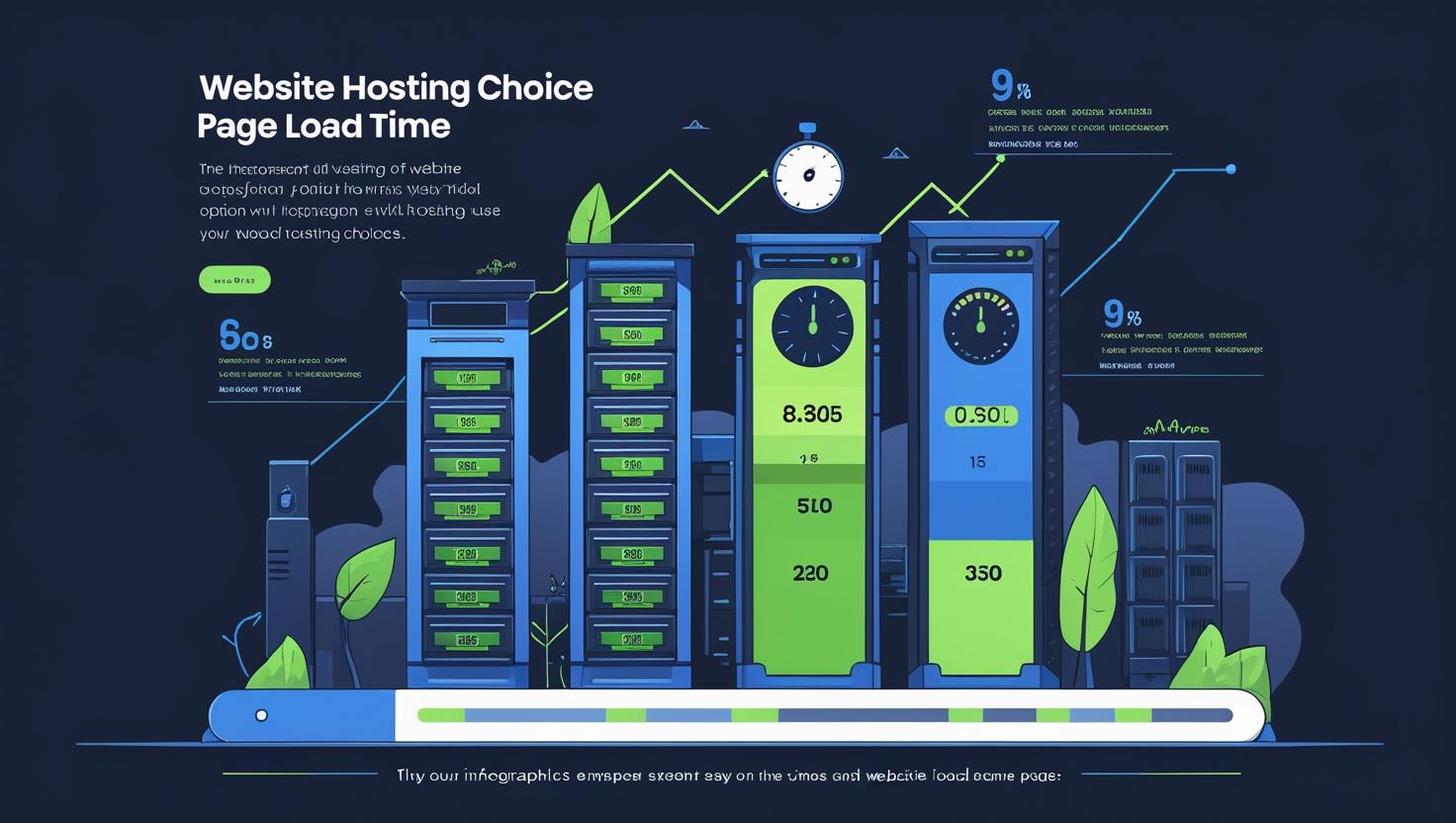
Impact of Hosting on Page Load Time
🚀 The Impact of Hosting on Page Load Time: Why It Matters for SEO and User Experience
When it comes to building a high-performing website, page load time is not just a technical metric—it’s a critical factor that directly influences your SEO ranking, user satisfaction, and conversion rate. One of the most overlooked contributors to slow website speed is your web hosting provider.
Let’s dive into how hosting affects website speed and why choosing the right host can make or break your online presence.
🔍 What Is Page Load Time?
Page load time refers to the time it takes for a web page to fully display its content after a user clicks on a link or types in a URL. Google recommends that a site loads in under 2.5 seconds for optimal user experience. Anything longer, and your visitors are likely to bounce—harming both traffic and sales.
🖥️ How Web Hosting Affects Load Time
1. Server Performance & Speed
Your host’s server hardware and software configurations significantly impact how fast your site loads. Premium hosting companies invest in high-speed SSDs, modern processors, and updated server environments, delivering content quickly to users.
2. Hosting Type
-
Shared Hosting: Resources are split between multiple websites, leading to slower load times during peak hours.
-
VPS (Virtual Private Server): Offers better speed with dedicated portions of a physical server.
-
Dedicated Hosting: Full control and optimal speed, best for high-traffic or resource-intensive websites.
-
Cloud Hosting: Highly scalable and efficient, ensuring faster load times even during traffic spikes.
3. Data Center Location
The closer your server is to your audience, the faster the content will load. Many hosts allow you to choose a server location for optimal speed across regions.
4. Bandwidth and Resource Allocation
Low-tier hosting plans often limit bandwidth and memory, causing delays as your site tries to load images, videos, or scripts. Investing in better hosting ensures smoother delivery and better performance.
5. Uptime and Downtime
Frequent downtime means not only lost traffic but also poor SEO signals to Google. Quality hosts offer 99.9% uptime guarantees to keep your site consistently available and fast.
6. Built-in Performance Features
Top hosting providers offer integrated features such as:
-
Content Delivery Networks (CDNs)
-
Caching tools
-
Image optimization
-
One-click performance plugins
These tools reduce the time it takes for content to reach the user’s browser.
📊 Hosting and SEO: A Direct Link
Google’s algorithm prioritizes websites that load quickly and are consistently available. A few ways hosting directly impacts SEO:
-
Improved Core Web Vitals scores
-
Lower bounce rates
-
Faster indexing by search engines
-
Higher user engagement and conversions
If your website is slow, even the best content and SEO strategies won’t be enough to rank well. Hosting is the technical foundation that supports all your digital marketing efforts.
🧠 User Experience Matters
Beyond SEO, a faster site offers a better user experience:
-
Visitors stay longer
-
Pages are easier to navigate
-
Conversion paths are smoother
-
Mobile users experience fewer delays
In an era where every second counts, even a 1-second delay can result in a 7% drop in conversions.
✅ Final Thoughts: Choose Hosting That Supports Speed
Investing in the right hosting provider is a strategic decision. It’s not just about having a website—it’s about having a fast, reliable, and secure platform that supports growth. If you’re experiencing lag, high bounce rates, or poor SEO results, it may be time to upgrade your hosting.
📌 Pro Tip: When evaluating a hosting provider, check for:
-
SSD storage
-
Global CDN integration
-
Server location choices
-
24/7 technical support
-
Proven uptime history
-
Scalable plans as you grow
In conclusion, the impact of hosting on page load time is undeniable. A quality host improves speed, boosts SEO, and enhances user satisfaction—giving your website a competitive edge in a crowded digital world.